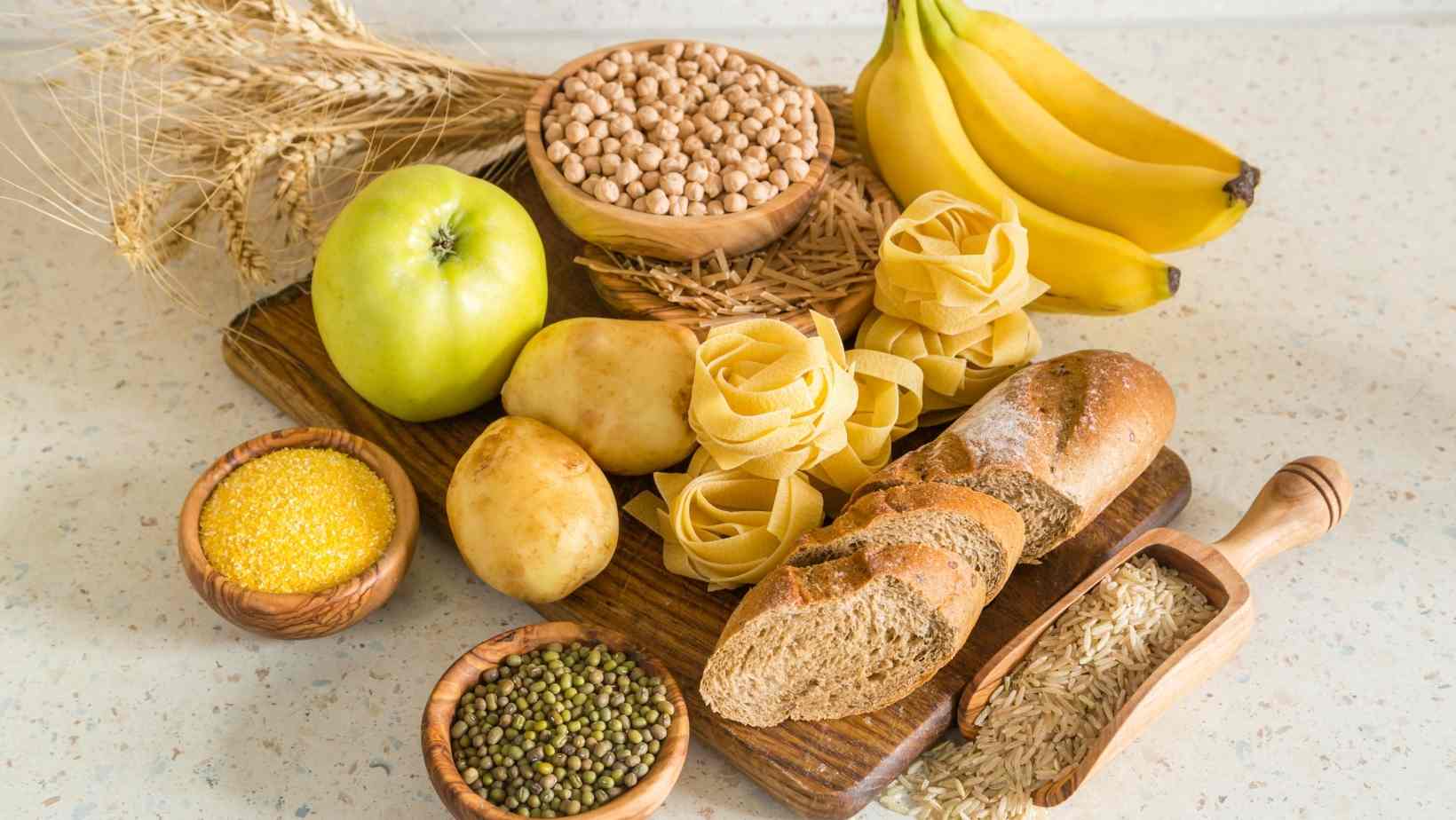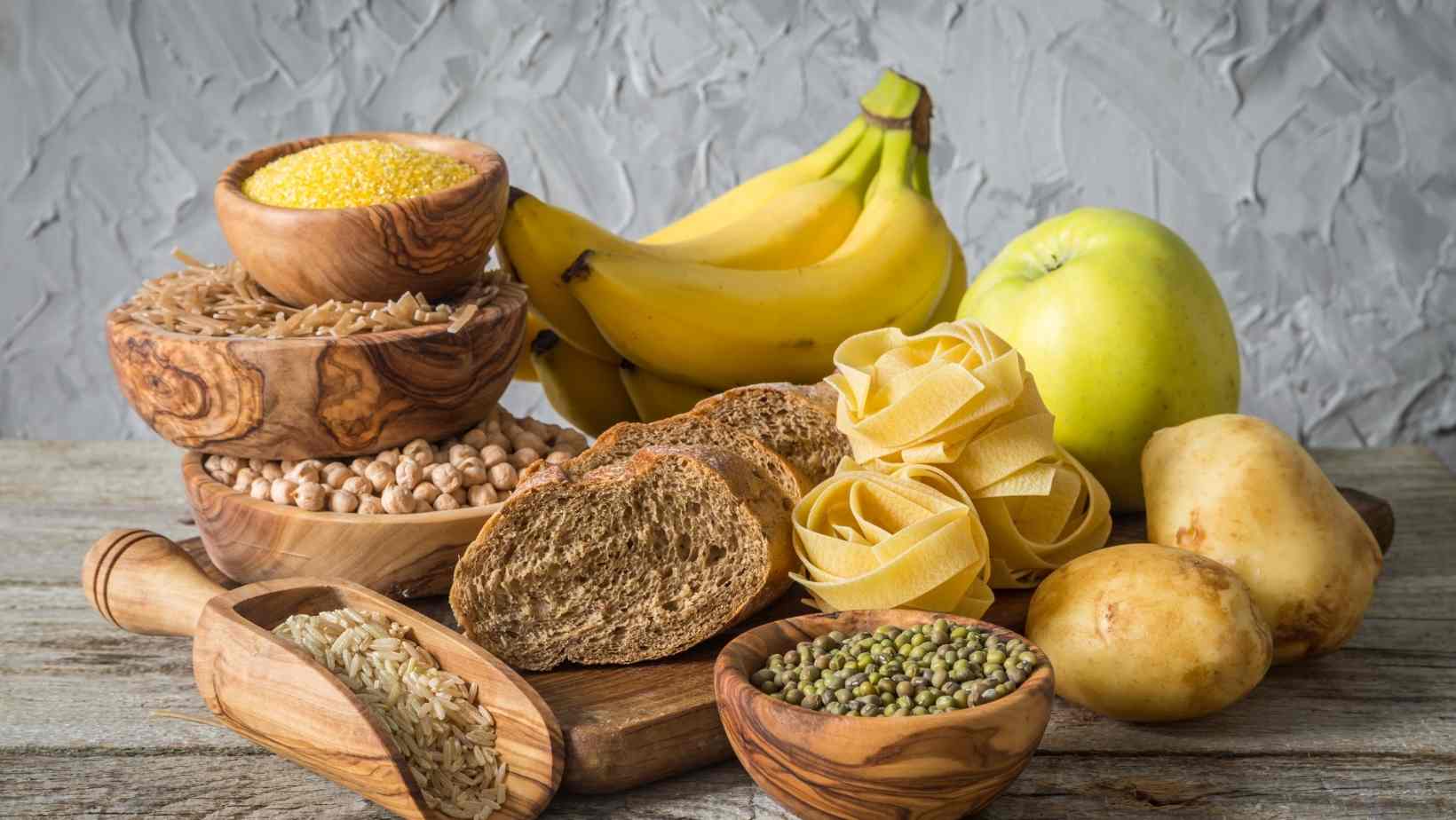Carbohydrates have a poor reputation. Carbohydrates, on the other hand, aren't all the same. We explain why complex carbohydrates are superior to simple carbohydrates and how to include them in your diet.
Carbohydrates have been on a roller coaster ride recently. Carbohydrates are also tricky. You may think of white bread, rice, and pasta when you hear the word "carbohydrates," and you might think of them as foods to restrict or avoid. Have you heard of complex carbs and how they may help you eat a balanced diet?

Carbohydrates are the body's primary source of energy, thus everyone requires them. They provide your brain and muscles vital fuel to think and move quicker than protein and fat because they are digested faster. Your daily carbohydrate requirements are determined by your specific requirements. Carbohydrates should account for 45-65 percent of daily calories, according to the Dietary Guidelines. For instance, if you consume 2,000 calories per day, carbs should account for 900-1,300 calories. This is 225-325 grams of carbs per day. The majority of those carbohydrates should come from complex carbohydrate sources that are good for you.
What Do Simple and Complex Carbohydrates Have in Common?
Your body breaks down simple carbohydrates (also known as simple sugars) fast because they only contain one or two sugar molecules connected together. Simple carbohydrates are found in honey (fructose and glucose), sucrose (table sugar), and lactose (milk).
Complex carbohydrates include more nutrients and take longer for your body to absorb, so they help fill you up while avoiding blood sugar fluctuations. According to Molly Cleary, M.S., R.D., a registered dietitian in New York City, "complex carbohydrates have bigger molecules than simple carbs." "Our bodies take longer to digest and absorb them as a result." Complex carbs may be found in grains, beans, fruits, vegetables, and even potatoes. Fruit, for example, includes both natural fruit sugar (fructose, a simple carb) and dietary fiber, making it a multi-carbohydrate item (also a type of carb). The healthiest carbs are what we term "complex carbohydrates," which are unprocessed plant foods that are low in added sugars and rich in fiber. We could all use more of these in our diets.
1. Complex carbohydrates keep you fuller for longer and help to maintain a constant blood sugar level
Candy, pastries, and soda, which are largely made up of simple carbs, give an immediate source of energy, but they are rapidly absorbed and boost your blood sugar. This causes a post-sugar collapse, as well as a resurgence of hunger. Due to their greater molecular structure, complex carbohydrates take longer to break down. Fiber, which passes slowly through the digestive system, is also included in the better ones. "Complex carbohydrates digest more slowly, making us feel satisfied and fuller for longer," explains Isabel Smith, M.S., R.D., C.D.N., registered dietitian and founder of Isabel Smith Nutrition, Inc.
2. Nutrients are more plentiful in complex carbohydrates
Complex carbs, in addition to managing blood sugar, frequently include fiber, vitamins, minerals, and antioxidants that simple carbohydrates lack, according to Cleary. A sweet potato, for example, is high in vitamin A, fiber, and antioxidants, whereas simple carbs are high in sugar but low in nutrients.

3. Complex carbohydrates are heart-healthy and may aid weight loss
Soluble fiber, such as the sort found in complex carbs like apples and oatmeal, may help decrease LDL cholesterol or "bad" cholesterol. Consuming 25-35 grams of fiber per day may help you lose weight and keep it off over the long haul. The typical American consumes just approximately 15 grams of fiber per day.
More Complex Carbohydrates in Your Diet
Every meal and snack should include complex carbs. To boost energy and satiety, combine them with protein and healthy fats. Here are some simple ideas for using them.
- Don't be frightened of potatoes: One medium potato has less calories than a cup of pasta while still providing 4 grams of fiber, 4 grams of protein, and 25% of your daily potassium needs. Fill the remainder of your plate with non starchy veggies such as broccoli or Brussels sprouts, as well as protein, if you're having potatoes for supper.
- Choose whole grains over refined grains: Quinoa, farro, amaranth, barley, soba noodles, whole-wheat pasta, and brown rice are complex carbs that provide additional vitamins and minerals that refined grain products such as white rice or white pasta do not.
- Include more plants on your plate: "You can't underestimate the value of eating more plants, and veggies and beans/legumes are an easy option if you're looking for complex carbohydrates," says Allison Knott, M.S., R.D.N., a registered dietitian in Brooklyn. "Add spiralized root vegetables like sweet potatoes or parsnips to pasta recipes, replace meat in chili and burgers with beans (or half-and-half), or add cooked leafy greens to soups, egg scrambles, pastas, and sandwiches," she recommends.
- Simplify your snack with complex carbs: Snacks may be quick and easy to prepare while still providing a good source of complex carbohydrates. A sliced apple or banana with peanut butter on top is a fantastic source of healthful carbohydrates. Or, if you're feeling adventurous, grab some beans. "High-fiber snacks like roasted chickpeas or roasted broad beans" are recommended, according to Knott.




